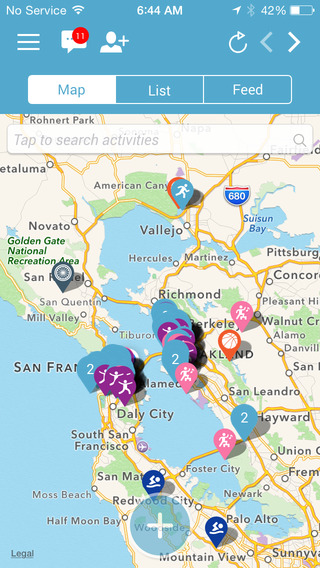 New York City-based accelerator Startup Health has added six more companies to its academy program. It now has 90 companies in its portfolio.
New York City-based accelerator Startup Health has added six more companies to its academy program. It now has 90 companies in its portfolio.
Startups who have participated in Startup Health have raised a total of $190 million as of January 2015. That's up from $154 million in October 2014. Back then Startup Health said its portfolio was made up of 42 percent physician and practitioner founders, but the accelerator is now at 40 percent physician and practitioner founders. Additionally, Startup Health now has 31 percent women founders, up from 29 percent in October.
Some 35 percent of entrepreneurs in the program are serial entrepreneurs and 23 percent graduated from seed accelerator programs.
In the last couple of years, three StartUp Health companies were acquired. At the end of 2013, WebMD acquired patient portal startup Avado, to accelerate WebMD’s plans to enhance the connectivity between its recently relaunched WebMD patient app and its physician-facing MedScape app. And this year, Intel acquired Basis Science, the activity tracker company that makes the Basis B1 Band.
Here are the six startups that Startup Health added to its portfolio:
United Arab Emirates-based AlemHealth has created a telemedicine offering for hospitals in developing countries. When patients visit their local hospital, but need to speak with a specialist to diagnose a condition, AlemHealth sends out a request to its network of specialist physicians in the US, UK, EU, or India to diagnose the patient. Within three to 24 hours of the call, the specialist will send the local hospital email, text, and hard copies of their report.
Austin, Texas-based Gritness has developed a search engine that helps consumers find and join workouts. Through the app or website, users can search for workouts or find friends that have similar fitness interests. Businesses can also use Gritness to make their available fitness programs more visible.
Tel Aviv, Israel-based Healarium offers a care coordination platform that aims to help providers prevent readmissions through patient engagement. The company has developed a health program available on web and mobile devices from which patients can view health data, follow personalized care plans, receive daily tasks, report progress, read educational materials, and take health quizzes. Clinicians can access their own dashboard that helps them pinpoint the higher need patients. According to the company, over 25,000 patients have completed prescribed care plans on the Healarium platform.
New York City-based iDx Ventures, has developed an at home test for benign prostatic hyperplasia (BPH) detection, called Clariflow. BPH, which is an enlarged prostate, is experienced by half of men over 50 years old, according to the company. To take the test, iDx Ventures will send the customer a device that he can pee into. After he is done, he marks his results on the device as instructed, and then uses the Clariflow companion app to check if his results were normal or if he needs to call his doctor.
New York City-based MouthWatch offers two tools: one is an intraoral camera and the other, called MouthWatch Connect, is a patient engagement platform for dentists. The service, available online or on mobile devices, helps dentists capture and upload images, videos, and x-rays to remind patients why they need to take care of their oral health, explain a treatment plan and care recommendations, send reminders, and schedule appointments.
Boston-based NuPlanit aims to help people form healthy, balanced eating habits using mobile technology and via communication with nutrition experts. The NuPlanit app will learn the user's health needs, goals, preferences, and willingness to change. It will then use this data to deliver the right level of support at the right time.



















